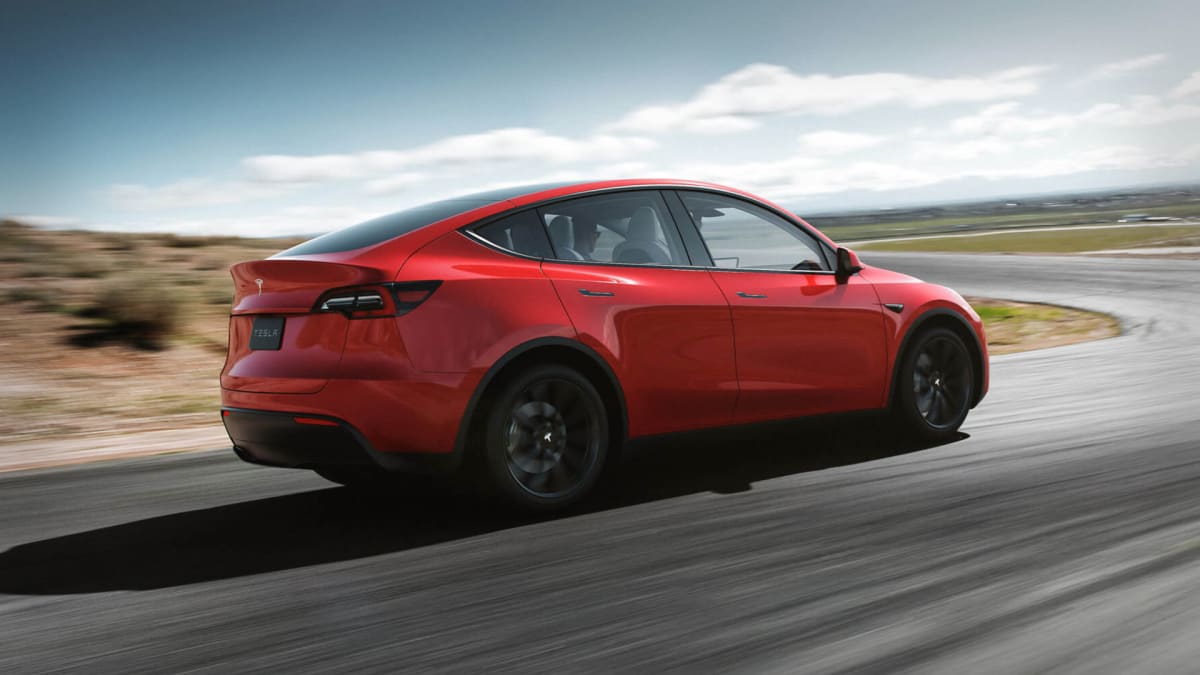
First came anger. Then revolt. And now both have given way to action.
Since Jan. 1 Tesla fans and EV supporters generally have been blasting the Inflation Reduction Act, which is supposed to encourage the mass adoption of green vehicles.
The method is to extend the $7,500 federal tax credit to 2032 and eliminate the threshold of 200,000 clean vehicles sold, which eliminated automakers like Tesla (TSLA) and General Motors (GM).
Normally, fans of less polluting cars would welcome the law and advertise it among themselves. That's especially since the legislation comes as car loans have become more expensive due to rising interest rates, and as a recession is probably on the horizon.
Well, that's the opposite of what's going on.
What's a Green SUV? IRS Excludes Some Model Ys.
Ticking off Tesla fans is that the Internal Revenue Service's list of green SUVs that benefit from the IRA excludes some variants of the Model Y, Tesla's most popular vehicle. The Model Y sits between the entry-level Model 3 sedan and the high-end models, the Model S sedan and Model X full-size SUV.
At the same time, this list gives the federal tax credit to competing hybrid vehicles.
The tax authorities' decision stems from their decision not to categorize the Tesla Model Y as an SUV. As a result Model Y variants carrying manufacturer's suggested retail prices exceeding $55,000 will not receive the tax credit.
The Model Y All Wheel Drive (5-seat variant), Model Y Long Range (5-seat variant), and Model Y performance (5-seat variant) do not qualify for the tax rebate because their MSRPs exceed the IRS's $55,000 threshold.
Besides the Model Y, some variants of the Ford Mustang Mach-E SUV also do not qualify for the federal tax credit despite the fact that they are 100% electric vehicles.
"The car on the left has a gas engine and gets 20 MPG. It has 21 miles of electric range. It gets a $7,500 EV Tax Credit," Youtuber Farzad Mesbahi blasted out, with images of a Jeep (STLA) Grand Cherokee 4xe and a Tesla Model Y. "The car on the right is ELECTRIC ONLY and gets 113 MPEe. It has 330 miles of range. IT DOES NOT GET A $7,500 EV TAX CREDIT."
The Jeep Grand Cherokee 4xe is a hybrid.
"Messed up!" commented Tesla CEO Elon Musk.
Mesbahi immediately launched a petition on change.org and it has so far collected nearly 38,000 signatures.
The Tesla community has mobilized on social networks. Musk and other fans are calling on consumers to express their displeasure to the IRS, which is asking other federal agencies and the general public to comment on its guidelines regarding the application of the Inflation Reduction Act.
"Please comment on this matter," Musk urged on Jan. 3.
'Harder' to Sell EVs
"The IRS is soliciting comments concerning qualified plug-in electric vehicle credit and Revenue Procedure 2022-42," the federal agency wrote on Dec. 30.
Comments are accepted until Feb. 28.
The Tesla community hopes to pressure the IRS to reconsider its qualification of the Model Y and all its variants.
"The [Inflation Reduction Act's] heart is in the right place," said Karl Brauer, executive analyst at iSeeCars.com. "If there’s one thing we’ve learned from the past few years, it’s that America (and much of the planet) needs to be less dependent on China."
But "that said, multiple policies within the IRA were not well conceived, and the near-term result is vehicles like the Model Y getting left out of the push to sell EVs while plug-in hybrid models like the Audi Q5 (VWAGY) and BMW X5 (BMWYY) get the full benefit."
"If the government is trying to reward U.S. vehicle production and reduce CO2 emissions, this legislation isn’t helping.
"The Model Y is just one of many EVs negatively impacted by the IRA. Eventually all automakers can and will adjust production based on the IRA, but that will take years. In the meantime, this legislation will make it harder to sell many of today’s EVs."







